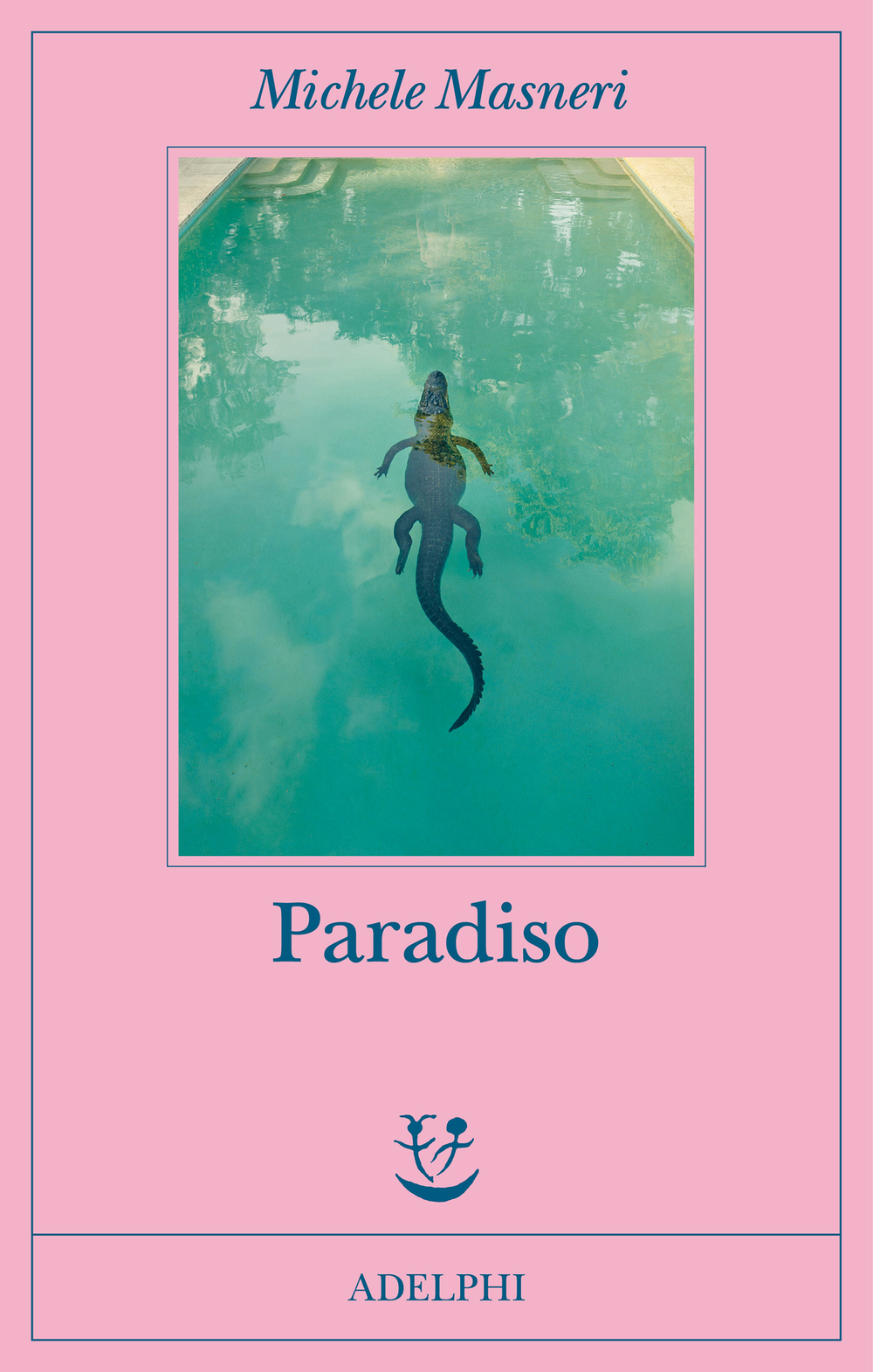‘The novel everyone is talking about. Our most cynical and tenderest writer.’ - Luca Guadagnino, Triennale, Milan 2024
‘What a novel, what talent, what wit and what cynicism.’ - Concita De Gregorio, D Repubblica
‘With the cruel levity of his master Arbasino, Michele Masneri has painted a hortus conclusus on the shore of the Latium Tyrrhenian Sea, inhabited by a heterogeneous human fauna but accumulated by a decided propensity for senselessness and decay.’ - Gian Arturo Ferrari, Cortina Prize 2024
‘Masneri's Paradise tastes of hell and happy damnation even when it presents itself in the guise of kindness. His Paradise has a hidden flame that burns under the ashes of melancholy and does not surrender to the evidence. It is a good sign. A sign of awareness'. - Malcolm Pagani, Il Foglio
‘A book-world, as they used to say, of those that no one seems to know how to write anymore, that brings to mind sorrowful, legendary and remarkable characters, who resemble the Mastroianni of La dolce vita, the Leo Gazzara of L'ultima estate in città, the Jep Gambardella of La grande bellezza.’ - Andrea Frateff-Gianni, Il Messaggero
The real precious book of today for understanding our present is Paradiso by Michele Masneri’. - Loredana Lipperini, L'espresso
Paradiso by Michele Masneri is so grotesque as to be tremendously true, so funny as to be tragic. In its pages flows that sublime combination of elegance and repugnance that links it on the one hand to the city of which it speaks, Rome, and on the other to certain authors who have sublimated it in their writing while sinking their roots in their native Milan, such as Carlo Emilio Gadda and Giorgio Manganelli.’ - Elisabetta Stefanelli, ANSA
‘Paradise is a novel by Michele Masneri for Adelphi. Michele Masneri is unquestionably the best writer (at the New Yorker) on the Italian scene'. - Claudio Antonelli, DOMANI
'Outspoken and merciless. Unmissable.’ - Francesco Mannoni, Il Giornale di Brescia
‘The funniest and most irreverent book of the year’ - Terry Marocco, Panorama
‘Paradiso is often hilarious. It is a pastiche of Arbasinian fan fiction, drives from Dino Risi's Sorpasso, gossipy streams of consciousness like Truman Capote, instead of the Côte Basque there is the Saporetti restaurant in Sabaudia, whatever. And adventures from Midnight in Paris of the swine, with a final splash of Enchanted Mountain' - Maria Laura Rodotà, TTL La stampa
‘Many compare Michele Masneri to Alberto Arbasino, to the Arbasino of ‘Fratelli di Italia’, although he is very reminiscent of the Truman Capote of ‘Preghiere esaudite’. Masneri has written a novel destined to remain.’ - Gian Paolo Serino, La Provincia
‘The novel everyone is talking about. Our most cynical and tenderest writer.’ – Luca Guadagnino, Triennale, Milan 2024
An initiatory journey, in search of an impossible interview, into the meanders of a secret garden from which, once you enter, you can never get out. A series of hilarious characters. The discovery of a new, fresh and irreverent voice in Italian fiction.
On “the hottest day of one of the hottest summers on record,” Federico Desideri, a young journalist full of promise but lacking in satisfaction, receives an assignment from the editor of the niche magazine he contributes to: he must go to Rome and interview a famous director whose latest film, featuring a memorable and captivating scoundrel, has been a runaway success. Federico soon discovers that the director is nowhere to be found; then, during a social event, he’s introduced to the man said to be the inspiration for the main character: Barry Volpicelli.
A sort of psychopomp midway between a Pied Piper and Bruno Cortona from The Easy Life, Barry leads Federico to an enchanted place: the Paradiso, a massive compound of ramshackle villas and bungalows on the Lazio coast, where he lives with a small group of lovable and eccentric old freaks. There’s an ambassador who hoards discount products; a retired gynaecologist who breeds ornamental chickens; Prince Gelasio Aldobrandi who, consumed by a perpetual “mystic-heraldic” anguish, pursues the unattainable dream of an heir; a lesbian couple who long for the days when they would be invited to the Vatican by Pope Ratzinger; a former showgirl who accuses the entire Italian film industry of stealing her ideas; and, last but not least, Mrs Volpicelli senior and junior.
Amidst endless deliriously futile conversations and a night when someone nearly kills one of the guests, the arrival of a famous influencer and a suspicious death, young Federico sees and learns many things during his stay at the Paradiso. Until he realises he can’t – or doesn’t want to – leave.
«As the Rolls-Royce advances along a dirt road, all he sees beyond the high wall are fields of freshly cut corn. In the distance, the sea glistens and hundreds of Roman pines form a frothy cushion separating this place from the anodised aluminium and concrete Beirut outside. Here, instead, there’s only luxury, calm and voluptuousness. There are no buildings, no passing cars, and for the moment, no people either. On either side, in the green-yellow fields, large hay bales resemble sculptures. In the middle, a forest, above which a tower rises, almost as if to guard the place from the outside world. This must be the Paradiso, he thinks, captivated by a strange enchantment.”
